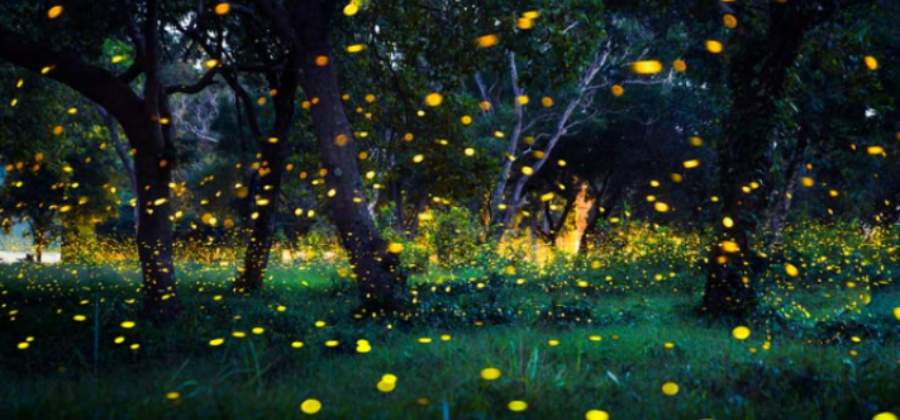Just as bees inspired better computers and solar panels mimicked butterflies, lighting technology has taken a cue from the animal kingdom.
Korean scientists studied the structure of the firefly's tail, and that study led to the development of more efficient anti-reflective LED lenses.
How a Firefly Glows
Fireflies have special light-emitting organs in their lower abdomens, and they flash because... well, we don't really know.For a long time, we assumed it served as a deterrent for predators - bioluminescent insects are often poisonous - but more recently, experts have begun to speculate that the firefly's glow serves a purpose in sexual selection.
The creature's "lantern" (or, if we want to be less technical about it: the glowy bit) allows that light through in a very specific, very efficient manner.
It reduces optical impedence with intricate cuticular nanostructures.
Why Might We Borrow from Nature?
Usually: the lenses of light-emitting diodes have smooth surfaces. These researchers microscopically scanned and replicated those cuticular nanostructures using a pioneering technique.Even more impressively, they were able to produce these lenses using a one-step moulding process (as opposed to the usual two-step) - which will help reduce the cost of mass-manufacture.
The bio-inspired anti-reflective lens has a high transmission coefficient - it lets 98% of light through by cutting the reflectance (loss of light).
This raises the overall efficiency of the device. Thanks to this research, we might look forward to cheaper LED lights that are even more efficient in the future.
What's next - an air conditioner that flaps like a hummingbird? Right now we have no way of knowing. Science is crazy.




